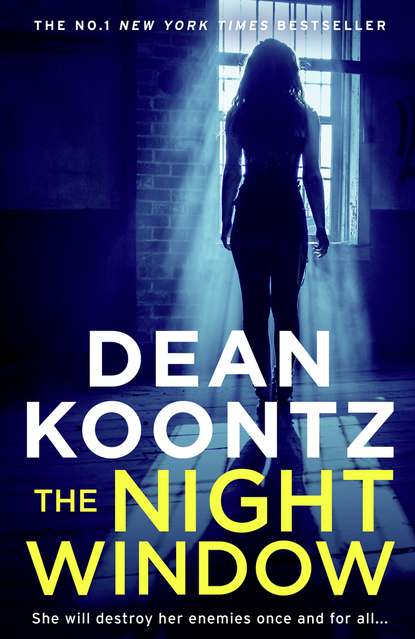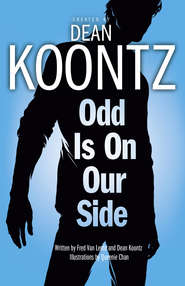По всем вопросам обращайтесь на: info@litportal.ru
(©) 2003-2025.
✖
Jane Hawk Thriller
Автор
Год написания книги
2019
Настройки чтения
Размер шрифта
Высота строк
Поля
“I don’t want to kill you, Vikram.”
“Good. I don’t want to be killed.”
“So don’t make it necessary.”
She holstered the pistol and climbed behind the wheel of the Explorer and pulled the driver’s door shut.
3 (#ulink_2491da01-86b3-5d84-826f-1a5be4d8fe76)
For three days, Charles Douglas Weatherwax waits in a luxurious suite in the Peninsula Hotel in Beverly Hills, anticipating his next assignment. He is a tall, strong, graceful man with a face of such clean, stylized lines that it looks like an Art Deco work worthy of being the hood ornament on a high-end automobile in the days when cars had hood ornaments and didn’t all look alike. He follows a high-protein low-carb diet, takes eighty vitamin pills a day, every twelve hours drinks a health product called Clean Green, and never fails to apply a number-fifty sunscreen after shaving. Each day before dinner, he sets out from his hotel on a long walk, which in part takes him through the park across the street.
During these strolls, as at all other times, he is looking for something that will justify his existence. There are people, sad cases, who never find their purpose in life. Charlie is not one of them. He has long known the meaning of his life, and he finds his mission deeply fulfilling.
During his first tour of the park, on Wednesday afternoon, he encounters a blind man sitting on a bench, in the shade of a trio of palm trees. The guy is fiftysomething. Shaved head. Neatly trimmed salt-and-pepper beard. An MP3 player rests on the bench beside him. Without an earpiece, he listens to Jeremy Irons read T. S. Eliot’s “Burnt Norton,” the first of the poet’s Four Quartets.
The listener’s blindness is suggested by dark glasses worn in the shade, implied by a white cane propped at the side of the bench, and confirmed by a beautiful German shepherd lying at its master’s feet. The grip of the leash lies untended on the bench, testament to the seeing-eye dog’s obedience and dedication.
“Time past and time future / What might have been and what has been / Point to one end, which is always present …”
Jeremy Irons reads the lines without artifice. His straightforward presentation speaks powerfully to Charlie Weatherwax.
Charlie doesn’t interrupt the poem but continues on his way without a word to the blind man.
From childhood—he is now thirty-four—he was taught the importance of committing random acts of kindness. His father was a community organizer with a genius for winning grants to improve the quality of life in less fortunate neighborhoods, and his mother was a high school principal, later a district superintendent. Both are now retired. He has often heard them speak of the rewards of a life of service; random kindness is key to their self-image.
The following afternoon, Thursday, he discovers the blind man on the same bench, in different clothing but listening now to “The Dry Salvages,” the third of Eliot’s Four Quartets. On this second encounter, Charlie realizes that he must act. But by doing what?
“There is no end of it, the voiceless wailing / No end to the withering of withered flowers …”
Charlie passes the blind man and his dog, the voice of Jeremy Irons propelling him as if he is a leaf on the surface of a swift stream.
He says nothing, does nothing—and throughout the remainder of the day regrets his inaction. By dinnertime, his regret has grown into remorse, a sharp-toothed guilt gnawing at his heart. His sleep is troubled. There is little chance that he will encounter the blind man again and be able to make things right.
Yet now, later Friday afternoon, at the same hour as before, Charlie comes upon the sightless listener in the park. Fortunately, he has prepared for this most unlikely third chance.
“Beautiful dog,” he says, and scratches the shepherd under the chin and sits on the bench. “What’s his name?”
Clicking off the audiobook, the man says, “Argus. He’s a treasure.”
“Unusual name for a dog.”
The guy looks toward the sound of Charlie’s voice rather than directly at his face. “In Greek mythology, Argus was a giant with a hundred eyes.”
“Ah. Unusual but apt. You were listening to T. S. Eliot.”
“Yes, the Four Quartets. I never tire of it. So allusive and layered, words as music. It’s a kind of meditation for me.”
“Beautiful,” Charlie agrees. “However, its meaning has always stumped me, I’m afraid, too complex for my feeble brain. His cat poems are more my speed.”
The blind man smiles. “Old Possum’s Book of Practical Cats. Amazing that he could write works of great depth and some of the most charming light verse ever put to paper.”
Charlie quotes, “‘Jellicle cats come out tonight / Jellicle cats come one come all …’”
Argus’s master recites, “‘The Jellicle moon is shining bright / Jellicles come to the Jellicle ball.’”
Hoping for the chance to rectify his previous failure to engage the blind man, Charlie has brought with him a hamburger patty spiced and cooked to perfection by the Peninsula Hotel’s room-service chef.
Approaching the bench, he’d taken it from a small plastic bag. Now he drops the meat on the park path in front of the dog.
Quoting the four opening lines from “Macavity: The Mystery Cat” louder and with less grace than Jeremy Irons might have performed it, Charlie covers the sound of the shepherd quickly consuming the patty and then says, “Name’s Harvey Hemingway, no relation. Friends call me Harv.”
“John Duncan,” says the bald and bearded fan of Eliot. “Pleased to meet an admirer of Old Possum.”
Charlie chats him up for a few minutes and then, when no one is close to them, no one approaching along the path, he says, “I gave Argus some hamburger—”
“Oh, I wish you wouldn’t have,” says Duncan.
“—laced with a fast-acting sedative,” Charlie says.
Alarmed, the blind man stiffens and calls the dog’s name. When there is no response, he fumbles for and locates the grip loop of the leash where it lies on the bench. He tugs, but Argus is deep in dreamland.
“He’ll be out for maybe two hours and groggy for an hour after that,” Charlie says, “but no permanent damage.”
“What the hell is this?” Duncan demands, putting some steel in his voice, as if he is capable of following through on a threat, as if he is Samson, eyeless in Gaza, but still possessing the strength to defeat his enemies.
Charlie puts a hand on his companion’s shoulder. “Listen to me, shithead, and listen close. There’s no one near us in the park. Lots of traffic out there on Santa Monica Boulevard, but all they see is two friends on a bench. They call L.A. the City of Angels, but there are angels in Hell, too, and they’re not the kind would do you any kindness. You call for help, you make a sound, no one will hear or care—and I’ll blind your dog. I have a sharp penknife. I can do it easy.”
John Duncan is as still as if he were a bronze figure of a man installed on the bench as a sculpture.
“What I’m going to do,” Charlie explains, “is shock you hard with a handheld Taser. I’ll do it three times. Each time longer than the one before. It’s going to hurt like hell. If you scream or cry out, I blind Argus and leave. In fact, you do any more than whimper like a baby, the dog will need a seeing-eye dog of his own. You hear me? You understand?”
“Why?” Duncan asks.
“You’ve heard about people who want to make the world a better place by doing random acts of kindness? Well, they’re a bunch of phonies. They live a lie and love it. There’s nothing real about them. I’m the real deal. I’m what the world is truly about—acts of random cruelty.”
As Charlie reaches under his sport coat and withdraws the Taser from a holster, Duncan leans forward, hands clasping his thighs, and pleads, “Please don’t. For God’s sake—”
Jamming the poles of the Taser against the blind man’s neck, Charlie pulls the trigger.
To John Duncan, a five-second shock probably feels as if a hive of wasps has come alive inside him, swarming and stinging through bone and flesh in an angry search for an exit. His teeth chatter like one of those old novelty sets of wind-up dentures, and then they stop clacking against one another when his jaws clench tight. He shudders, writhes in place, as if tortured by clonic seizures, which continue for a moment after his tormentor lets up on the trigger; his body jerks, arms flail, and then semiparalysis locks him in his corner of the bench. He is pale and glistening with perspiration. A thread of drool unravels from one corner of his mouth. Faithful to his dog, he neither calls out for help nor screams in pain.
If Duncan makes a scene, Charlie won’t follow through on his promise to cut the eyes of the shepherd. He likes dogs. He isn’t a monster. He hates people, but he likes dogs. The threat to harm Argus is just a tool to control the blind man, to ensure that he will be submissive.
The second Tasering lasts ten seconds.
Traffic slows and then surges on Santa Monica Boulevard, each motorist in his own world as surely as he is isolate in his vehicle, oblivious of the drama on the park bench as he is also abstracted from the lives of the other citizens of the city. John Donne wrote, No man is an island, entire of itself, which Charlie Weatherwax knows to be the ripest bullshit. The human species is an infinite archipelago of islands with rough seas separating them. All men and women are vortexes of pure self-interest, their self-love whirling at such velocity that true concern for others can never escape the centrifugal force of their narcissism.
To see his victim’s vacant stare, Charlie plucks off John Duncan’s sunglasses and throws them aside before Tasering him yet again, this time for fifteen seconds. Throughout Duncan’s body, every fascicle of nerve fibers short-circuits. The sightless orbs roll back in the man’s head as he is once more gripped by seizures, so that his gaze is without irises, blank and white, a stare as pitiless as nature itself.











